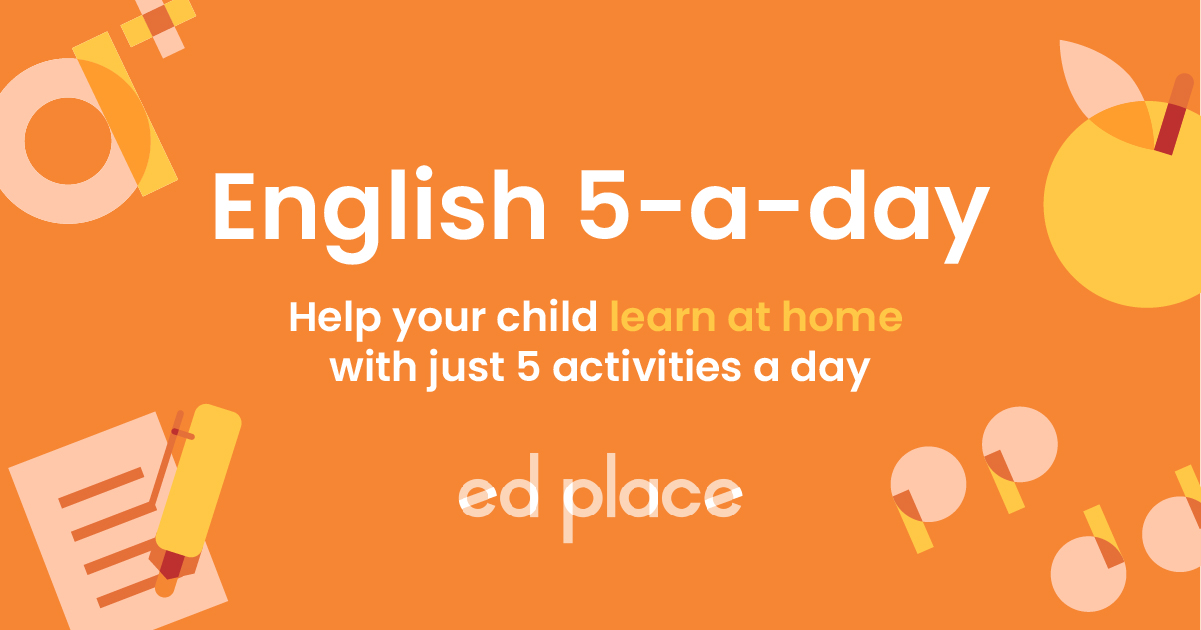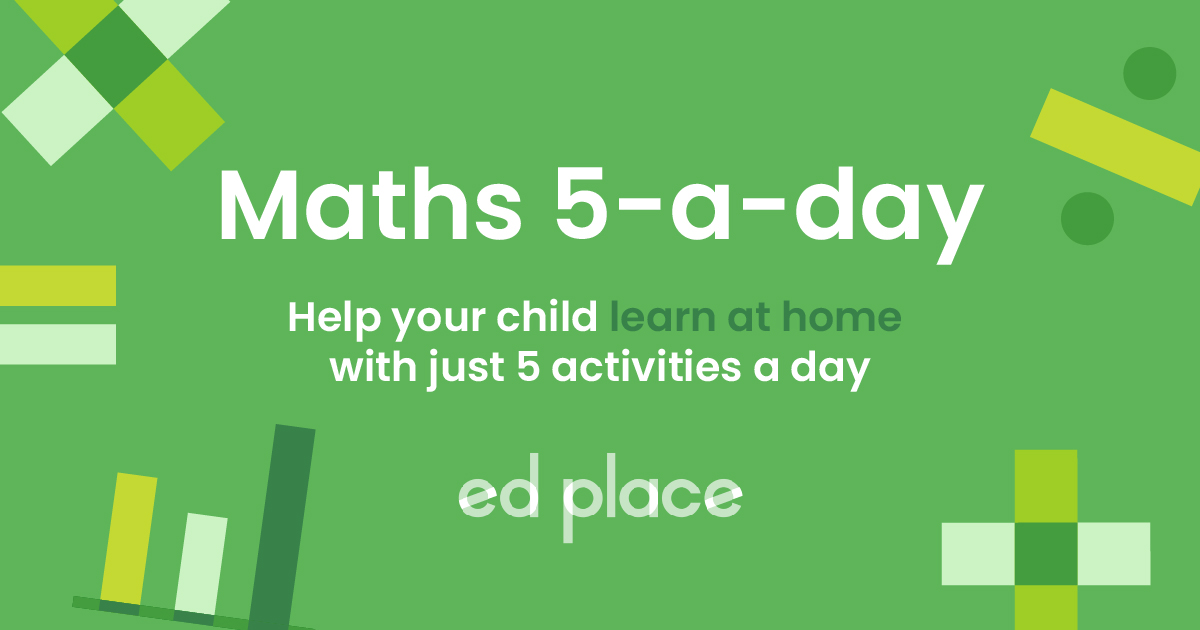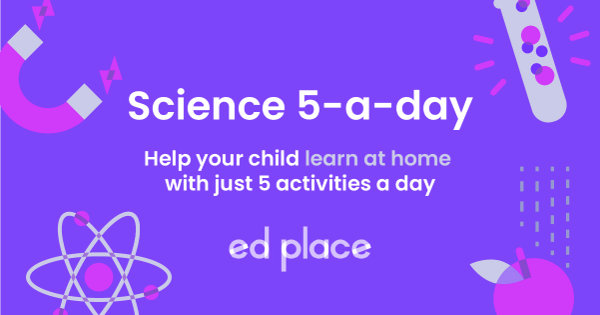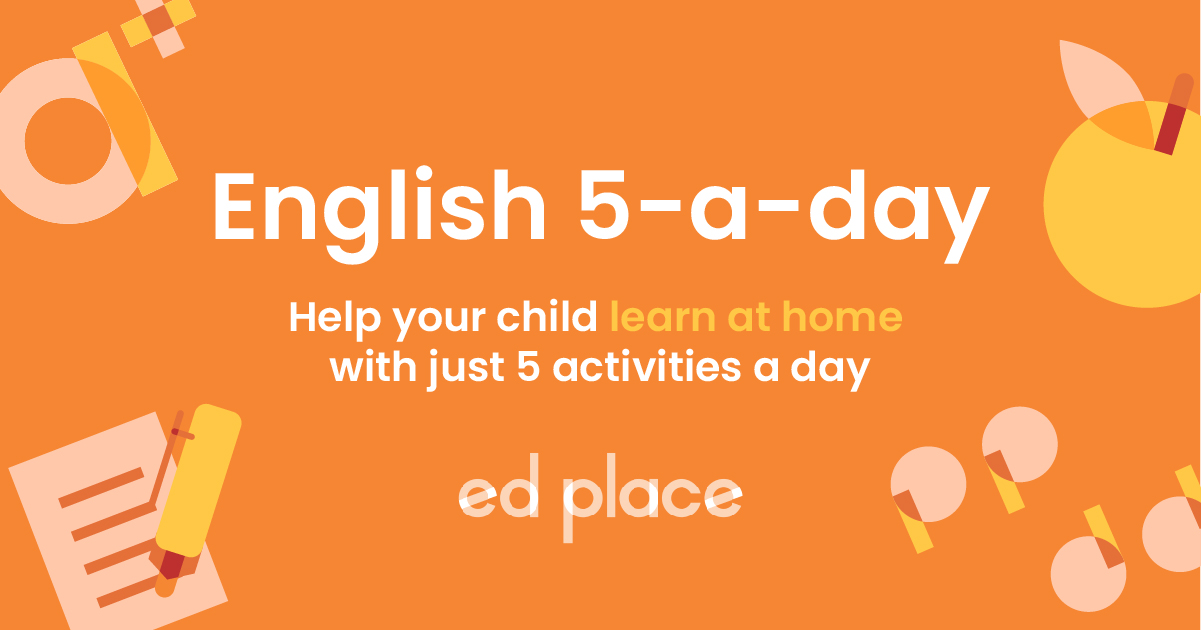
EdPlace's Y6 Home Learning English Lesson: Synonyms and Antonyms
Looking for short lessons to keep your child engaged and learning? Our experienced team of teachers have created English, maths and science lessons for the home, so your child can learn no matter where they are. And, as all activities are self-marked, you really can encourage your child to be an independent learner.
Get them started on the lesson below and then jump into our teacher-created activities to practice what they've learnt. We've recommended five to ensure they feel secure in their knowledge - 5-a-day helps keeps the learning loss at bay (or so we think!).
Are they keen to start practising straight away? Head to the bottom of the page to find the activities.
Now...onto the lesson!
Read on to end the confusion between synonyms and antonyms...
Synonyms are words that have the same or similar meaning – smile, grin. Antonyms are words that have the opposite meaning – happy, sad. One of the best ways to find synonyms and antonyms is to use a Thesaurus.
We're sure that if you follow this article through, your child will be able to:
1) Explain what synonyms and antonyms are
2) Apply appropriate synonyms and antonyms to their writing
3) Explain that not all synonyms and antonyms will be appropriate substitutions.
Step 1: Vocabulary check!
It’s important to check your child’s understanding of these keywords before moving on as they will come up throughout the lesson.
Synonym – synonyms are words that have the same or a similar meaning: happy, elated, joyful.
Antonym – antonyms are words that have the opposite meaning: happy – sad, miserable, upset.
Thesaurus – a Thesaurus is a book that lists words in alphabetical order and gives a list of synonyms for each word. They often provide a list of antonyms too. There are lots of them online too!
Step 2 - So, what do we already know about synonyms and antonyms?
Children will have learned about synonyms and antonyms in earlier year groups. They will be developing their ability to ‘progressively build a varied and rich vocabulary’.
Children will have looked at a range of synonyms and antonyms and will have had some experience of using a thesaurus to improve word choices in their writing.
Step 3 - What's next for Year 6?
- By the end of Year 6 children need to understand what synonyms and antonyms are.
- They should be using a wide range of rich vocabulary in their writing.
- They need to be able to select synonyms and antonyms that retain the sense/meaning of the sentence.
1. Have a look at the following. Can your child see how the synonym choice alters the sense/meaning of the sentences?
Synonyms for ‘bright’: radiant, lustrous, intelligent, vivid, rich sparkling, aglow, sleek, glossy.
The child was very bright. (clever)
The child was very intelligent. (clever)
The child was very glossy. (shiny)
2. The same applies when selecting antonyms. Can your child see how the antonym choice alters the meaning of the following sentences
Antonyms for’ bright’: flat, stupid, gloomy, lacklustre, dim, faint
The light was very dim. (not bright)
The light was very faint. (not bright)
The light was very stupid. (not clever)
3. When writing children need to ‘propose changes to vocabulary to enhance effects and clarify meaning’. Using a Thesaurus is an excellent way of building vocabulary. Here is an example of a page from a Thesaurus:
(Note the antonym examples at the bottom of the page.)
Step 4 - Having a go at using synonyms and antonyms
It’s always a good idea to practise new skills with your child to assess their understanding. Why not ask your child to have a go at the activities below:
1. Choose an appropriate synonym for the highlighted words in each of the sentences: Remember that the meaning of the sentence needs to stay the same.
- Most children are happy when it is the school holidays.
- Jack thought that the joke was funny.
- The sun shone brightly in the sky.
- Yesterday, it rained all day and the children were bored.
- The old man walked slowly down the road.
2. Now choose an appropriate antonym for the highlighted words in each of the sentences:
- Yesterday, was a hot day.
- Clouds moved slowly across the blue sky.
- The old man walked slowly down the road.
Challenge:
Can your child list at least 5 synonyms and antonyms for the following words? They can use a Thesaurus to help if you have one!
hot
big
sad
smile
good
Now, have a go at rewriting the following short paragraph, changing the highlighted words for synonyms. Which words make the writing the most interesting? Has the meaning changed? Why?
It had been a good day out at the funfair and Ahmed had been allowed to go on all of the big rides. There had not been a cloud in the sky and it had been hot. He had had a smile on his face all day and was very happy. Unfortunately, on the way home, his big balloon had burst and he was now feeling sad.
Step 5 - Show what you know
We hope your child is feeling more confident with synonyms and antonyms! If so, now is the perfect time for you to put them to the test. Here are some activities which will help to consolidate their learning. We recommend doing them in this order so that the learning builds progressively.
All activities are created by teachers and automatically marked. Plus, with an EdPlace subscription, we can automatically progress your child at a level that's right for them. Sending you progress reports along the way so you can track and measure progress, together - brilliant!
Activity 1: Understand Synonyms
Activity 5: Understand Antonyms 1
Possible example answers:
1.
- Most children are joyful when it is the school holidays.
- Jack thought that the joke was amusing.
- The sun shone brilliantly in the sky.
- Yesterday, it rained all day and the teenagers were fed-up.
- The elderly chap stumbled labouriously down the path.
2.
- Yesterday, was a chilly day.
- Clouds moved leisurely across the blue sky.
- The young lad raced speedily down the road.
Challenge:
| Synonyms | Antonyms | |
| hot- | boiling, humid | cold, nippy |
| big- | large, enormous | tiny, little |
| sad- | miserable, sorrowful | ecstatic, cheerful |
| smile- | grin, beam | grimace, sneer |
| good- | great, amazing | unpleasant, poor |
It had been an amazing day out at the funfair and Ahmed had been allowed to go on all of the enormous rides. There had not been a cloud in the sky and it had been humid. He had had a grin on his face all day and was very happy. Unfortunately, on the way home, his big balloon had burst and he was now feeling gloomy.
Keep going! Looking for more activities, different subjects or year groups?
Click the button below to view the EdPlace English, maths, science and 11+ activity library








